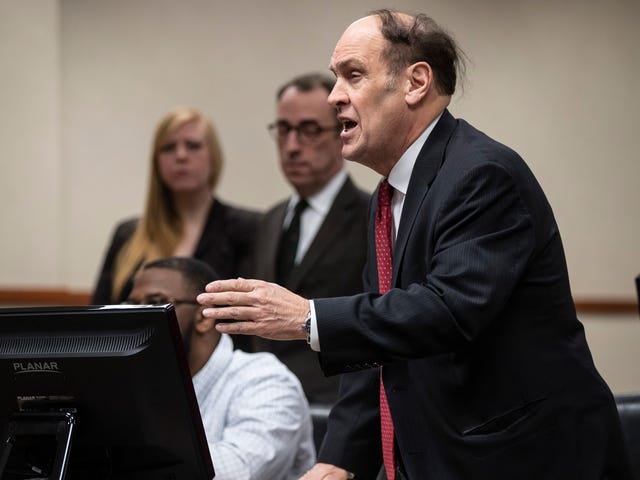DUI Law in Pennsylvania

Driving Drunk (” DUI”) is an one-of-a-kind criminal offense in American society because, fairly literally, it is the one crime that practically any adult citizen can find himself or herself billed with. Alcohol is offered at practically every dining establishment or night gathering. Every day countless otherwise-law-abiding citizens leave such occasions and drive away even though they are practically “under the influence” of alcohol.
The reality is that the majority of adult Americans consume alcohol on at the very least occasional scenarios. As well as, a lot of adult Americans stay in non-urban locations where taxicabs and also mass transit are not easy choices, particularly at night hrs.
Everybody knows that it is more suitable to have a “marked motorist” that is not alcohol consumption and can drive you house. Everyone also knows that driving under the influence is prohibited and can have extreme implications. The reality, nonetheless, is that daily excellent and straightforward individuals find themselves billed with DUI.
It is necessary for all motorists to have a basic understanding of DRUNK DRIVING regulation, just how policeman perform DUI examinations as well as the legal rights and also choices available to DRUNK DRIVING defendants.

I. DUI Legislation– The Fundamentals
For many individuals charged with DUI, the arrest procedure is really scary and also dehumanizing. Numerous (or most) DUI offenders satisfaction themselves on being efficient and favorable residents, so being handcuffed as well as treated like a bad guy can be a life-altering experience. A DUI arrest is much less frustrating and also challenging, however, when individuals have a standard understanding of DRUNK DRIVING law.
A person might be billed with DUI if he or she drives a car on a road drunk of alcohol or medications. Authorities might quit an auto for suspicion of DUI only if they have “potential cause” to think that the motorist has committed a criminal activity or violation. Cops might not randomly stop an automobile for no factor (although in the case of correctly developed “soberness checkpoints, the authorities are allowed to quit every car that passes the checkpoint).
The sort of “crime” which can justify a police car stop includes possible infractions of the automobile code (website traffic violations) such as speeding, straddling a lane, turning with a large distance, adhering to an additional cars and truck also carefully, stopping erratically or driving at evening with the headlights off. Checkout Texas DUI car accident laws in this link.
The cops may additionally stop a car if the registration or inspection is out-of-date (based upon dated sticker labels on the vehicle) or if they input the license plate into their computer system (which they are allowed to do) and also there is some problem with the lorry enrollment.
Pennsylvania DUI regulation has a three-tiered punishment system relying on a person’s blood-alcohol level. Charges for DUI sentences increase with each tier. The least severe fine makes an application for those that drive with a blood alcohol web content of.08 to.099 percent.
Extra severe charges obtain those that drive with a blood alcohol web content from.10 to.159 percent, as well as the toughest penalty relates to those with a blood alcohol content of.16 percent or better. An individual’s blood alcohol degree should be identified from blood attracted within 2 hours after the individual was in actual control of the car (although exceptions exist for this two-hour “need”).
People who “refuse” or decline to take a blood-alcohol examination upon demand of the police are considered to be in the greatest blood-alcohol web content tier.
Pennsylvania is among minority states that has a “in itself” law with respect to driving drunk of various drugs. This means that if a person billed with DUI has any kind of measurable amount of drugs in their system (even if the medicine was consumed days or weeks prior to the apprehension), they are penalized as if they were in the highest possible alcohol degree.
Despite this “per se” legislation, some Area Lawyer workplaces do have minimal levels for sure dangerous drugs as well as will not prosecute a person that drives with an amount in their system listed below these levels.
II. DUI Investigations After Cops Get On The Scene
Police officers are instructed that as soon as they run into an individual who they think has actually been driving drunk (which is typically after a traffic quit or coming to the scene of a mishap), they ought to conduct a suitable investigation to confirm whether the person was driving under the influence. District Attorney’s workplaces desire such investigations to be detailed and legitimately proper to ensure that they can confirm the situation if it continues to test.
The very first drop in conducting such an examination is normally to involve the motorist in Standardized Field Soberness Tests. Standard Field Sobriety Tests were developed as the result of research conducted in the mid 1970s for the National Freeway Website Traffic Safety And Security Administration (” NHTSA”). The purpose of this research study was to establish standard tests which would certainly give a dependable approach of determining whether an individual is intoxicated based upon field sobriety examinations.
The NHTSA has concluded that three examinations, if methodically performed according to stringent standards, can forecast whether a person may be drunk of medications or alcohol. The only 3 area sobriety tests authorized by the NHTSA are the Straight Gaze Nystagmus (” HGN”) test, the Walk-and-Turn examination the One-Leg Stand examination.
Police officers need to be trained to search for developed “racking up aspects” or “hints” which must be examined in figuring out whether or not intoxication exists. A finding of drunkenness need to just arise as soon as a certain number of ideas are identified. If less after that the certain degree of clues are identified, the policeman must end that there a high degree of chance of non-intoxication.
For instances that continue to trial, it is important for defense attorney to thoroughly examine law enforcement agent relative to their area soberness examination training and also adherence to NHTSA protocols. If a police officer is uncertain of these protocols and/or the NHTSA-approved indication system, his or her verdicts can shed reputation with a judge or court.
These three standardized field sobriety examinations are detailed listed below:
Horizontal Gaze Nystagmus (” HGN”) Test
Straight gaze nystagmus is a spontaneous jerking of the eyeball which occurs normally as the eyes revolve in the outlet. Theoretically, a sober individual can visually comply with a moving object efficiently as well as without nystagmus (“stopping as well as starting” of the eyeball).
Nystagmus is normally exaggerated when an individual is under the influence of alcohol, leading to a jerking motion as the eyes turn. In the HGN examination, the policeman gradually relocates an object such as a pen or little flashlight to and fro before an individual’s eyes and observes the real eye motion.
The inspector looks for 3 indications of impairment with respect to each eye: (1) if the eye can not adhere to a moving object smoothly, (2) if jerking is unique when the eye is at maximum deviation, and also (3) if the angle of beginning of jerking is within 45 degrees of. The NHTSA has actually ended that if, between both eyes, 4 or more indicators are present, the subject likely has a BAC of 0.10 or higher.
It is important to keep in mind that also the NHTSA recognizes that the HGN screening properly identifies about 77 percent of suspects. Appropriately, the HGN test will certainly cause numerous incorrect positives as well as can not be taken into consideration a trusted sign of intoxication. Without a doubt, the HGN is not acceptable in Pennsylvania courts although police are permitted to make use of the test to establish possible cause to arrest. Individuals taking particular suggested medicine may likewise “fall short” the HGN test although they are not intoxicated.

